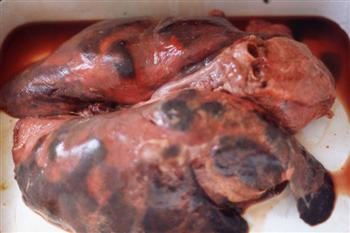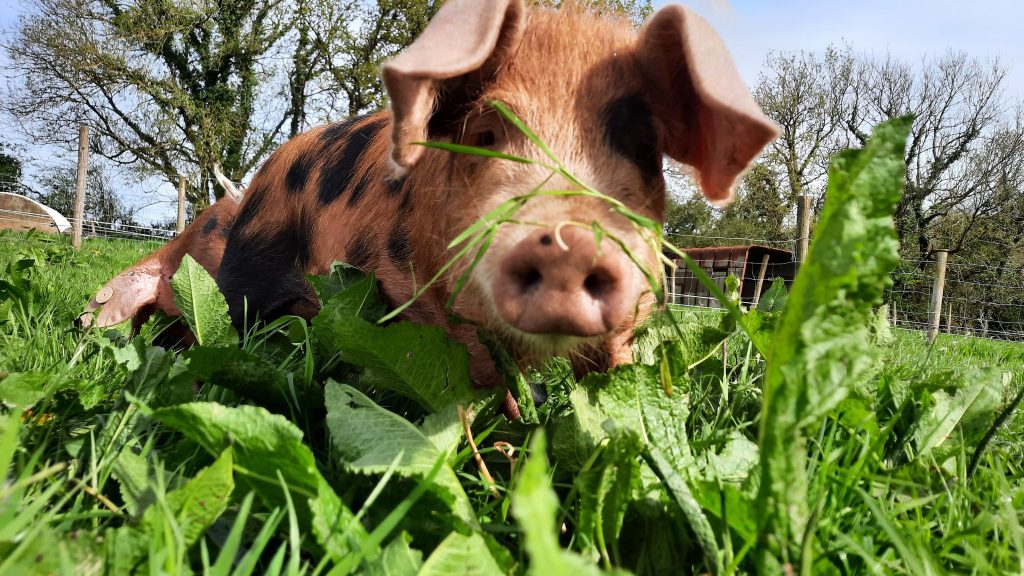
Mixed respiratory disease is reported as one of the most common clinical conditions affecting growing pigs in the UK by NADIS reporting veterinary surgeons. As part of the collection of micro-organisms causing this syndrome, Actinobacillus pleuropneumonia can be an important contributor. It may also, however, exist as a stand alone uncomplicated condition either causing acute epizootic disease or chronic low grade infection. The organism has been recognised as causing major loss to UK producers since the late 1970’s and remains an important pathogen.
The Cause
The cause of pleuropneumonia (previously known as “Haemophilus”) is a bacteria called Actinobacillus pleuropneumoniae, of which there are many strains recognised worldwide and many subtypes within each strain. The ability of different strains and subtypes to cause disease varies widely and it is strongly suspected that a large proportion of farms are infected with mild or non-pathogenic subtypes without disease ever becoming evident. The bacteria, does however, appears to be able to survive for long periods in the tonsils of pigs.

Whilst the acute clinical disease primarily affects the growing pig, research has shown that adults and piglets can be affected.

The main cause of disease spread is through aerosol transmission, by introducing affected pig/s on farm or at other livestock gatherings where social close proximity encounters are practised. The disease does not appear capable of spreading more than 600-800m from farm to farm on the wind but transmission over distances by contaminated fomites ( materials that are likely to carry infection: clothes, footwear, unwashed hands and equipment) is possible.
Treatment
There are various antibiotic drugs that will be prescribed by your veterinarian. It is worth noting that in extreme circumstances, observations have shown that pigs will not eat or drink.
As the outbreak subsides, medication of the water or feed with appropriate antibiotics (e.g. Amoxycillin, tetracyclines or potentiated sulphonamides) can be effective.
An effective antibiotic is available for Actinobacillus Pleuropneumonia which can be taken in feed and has shown to be an exceptionally efficient antibiotic against Actinobacillus Pleuropneumonia. Details can be obtained from your own veterinary surgeon who will discuss and advise you accordingly.
Prevention
As with all diseases the premise is to maintain a disease free herd. Of course the challenge lies in determining the presence of the organism in a herd when it does not manifest as clinical disease, making it difficult to ascertain.
When the disease is identified then we must look to managing our facilities in the following way:
1) Comfortable temperature
2) Good air-flow
3) Density of livestock and size of groups
4) Nutrition and water supply
5) Look to control disease as well as viral infections.
7) Bio-security
8) Stock management. IE: Operate an all in all out operation if stocking for meat and compartmentalise in to age groups
It is possible, via the veterinary surgeon, to have a special (autogenous) vaccine made under DEFRA licence.
Typically, vaccine is given as 2 doses to growing pigs such that the second dose is given at least 2 weeks before expected disease. In some situations, vaccination of the breeding herd instead of or as well as the growing pigs is necessary.
In all cases it is not appropriate to rely long term on antibiotic medication to suppress disease.
Where control cannot be satisfactorily achieved or the cost of control measures is unacceptable, elimination programmes based on total or partial herd depopulation programmes is appropriate.
Costs
Respiratory disease can contribute 5% to herd mortality and reduce the growth rates by 100gm/day and depress feed conversion efficiency by up to 0.5. On a herd basis this can impose a cost in excess of £5/pig produced.
Photos: NADIS
Become a Friend of the OSBPG and help us to continue in creating a brighter future for our breed, their breeding dynamics and the existing bloodlines. We are proud to be UK’s only pig breed that is a registered charity
